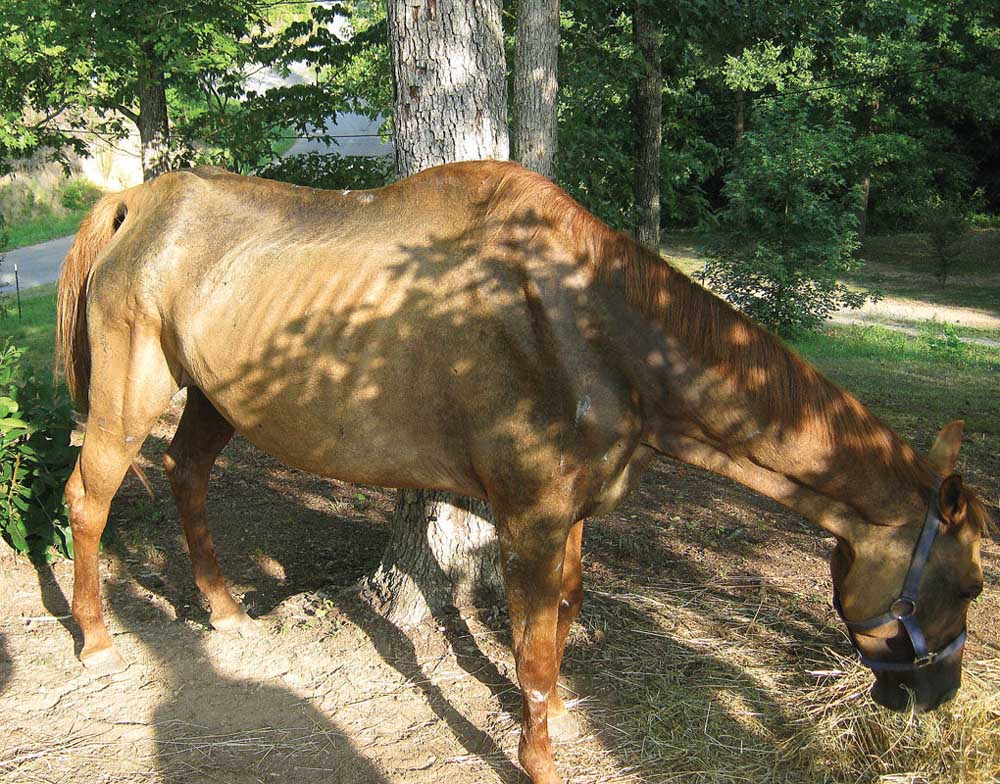Horses in recovery?
Published 11:29 pm Thursday, August 5, 2010

- Dixie at her new home.jpg
Randy Downing said the first time he saw the condition of some horses in a grassless pasture in his White Oaks Estates neighborhood, he cried.
Trending
“I couldn’t believe it,” he said. “I had to do something.”
Downing said he went to a local feed store in southern Murray County off Ga. Highway 225 and bought several bales of hay. He threw them over the fence when he said he couldn’t get anyone to come to the door of the home at 1145 North Pass.
“That should keep them alive for a few more days,” he said. “I’m prepared to buy more.”
Downing isn’t the only person who has noticed the condition of the horses, however.
Reached by phone on Thursday, the owner of the horses, Michael Parks, said he is working with Murray County Animal Control and the state Department of Agriculture to bring the horses back to health.
“We’ve already got (the horses) checked out, we’ve already got the Department of Agriculture on the scene,” he said. “We’ve got everything taken care of and we don’t need any press coverage … we’re already working on the situation. All that means is we’re having to up the feed.”
Trending
Parks was asked if he had been given a timeline for the horses — who appear lethargic and gaunt with their ribs showing — to improve.
“No, they just said they’d be coming back to check,” he replied. “They said up the feed and keep it going, and they’d be back soon to make sure everything’s going well.”
When asked how many horses were on the property and if he was able to take care of them, Parks responded, “Five or six, and yes, we are able to feed them. We just weren’t feeding them enough. It’s a big story. Good Lord, I can’t give you all the details right now.”
When it was pointed out that animal control and the agriculture department are taxpayer-funded agencies and citizens have a right to know how their money is being spent and whether animals are being taken care of by law, Parks replied, “That’s what I’m saying. We’re already dealing with the (Ag Dept.) and … we’ve done discussed everything with them, and they know we’re on top of it and we’re getting everything straightened out. We’ve got (food) on its way now … hay, feed and alfalfa. Just for the record, they’ve all been wormed, everything’s good.”
Paula Sewell, an inspector with the equine division of the state Department of Agriculture, confirmed on Wednesday she was investigating the situation at Parks’ residence, and would be there on Thursday or Friday. But she added she couldn’t reveal information while the investigation was open.
“We give our knowledge and our expertise to try and evaluate the situation,” she said. “The state does not press charges (in cases of neglect or abuse), the county presses charges … (but) we do make recommendations to local authorities. We investigate the situation and see if it’s a case of neglect or if it’s a case of horse owners (not being) knowledgeable in taking care of the horses. We make recommendations to the horse owners and leave the investigation open to see if the horse improves. We stay in touch with the local authorities.”
Murray County Chief Deputy Ray Sitton said on Thursday he was unaware of any officers being called to North Pass on an animal neglect or abuse call. Murray County Animal Control Director Pauline Davis confirmed her office is aware of the situation with the horses belonging to Parks.
“The state will try to work with them (Parks),” Davis said. “A lot of people don’t know how to take care of a horse, it’s not like a dog where you just throw some food out there and go on.”
Sewell said the problem of people being unable to properly care for large animals is not uncommon.
“People are buying horses and not giving much for them, but without the understanding and knowledge of how to take care of a horse,” she said. “They get it home and have no idea of how much it takes to take care of one and what kind of facility they need, the area to keep one in. Right now we’re dealing with a lot of neglect, unfortunately, just because of the economy. Some of it’s just people who don’t know how to take care of a horse, and some of it’s people who just don’t care.”
Down the road from Parks, neighbor Maryann Dunn is struggling to return one of the horses back to health that she said she purchased from Parks two weeks ago.
“I was scared to death of horses before, and wouldn’t get near one,” she said as “Dixie” munched on some hay in the shade of her expedient pasture girded with new barbed wire. “I bought her because of the way she looked. We put up a fence in the yard here, and put her on a high-protein, high-fat diet. She’s put on about 100 pounds in two weeks. She weighs almost 800 pounds, but the vet says she’s supposed to weigh 1,200 pounds.”
Last week, Dunn said Dixie fell down and it took five hours to get her back on her feet. Veterinarian Rebecca Knowles of Chatsworth came out to help, Dunn said.
“(Knowles) said she was so emaciated she was surprised that she made it,” said Dunn. “She gave her some electrolytes.”
An assistant at Knowles’ office acknowledged the vet came and helped get Dixie out of a ditch, and also gave the horse some medication.
Dunn admitted that taking care of a horse has been a new — and expensive — experience.
“I spent $1,700 in the last two weeks because I was not ready for it — the feed, the meds, the bug spray,” she said. “I’ve bought 590 pounds of food. Dixie has had heat stress also. I’ve hosed her down but wiped the water off because she’s had rain rot. I’ll probably have to hose her down five or six times today.”
Dunn said her neighbors “aren’t bad people.”
“I know Michael loves his horses,” she said, noting that he helped her husband erect the fence for Dixie. “I just know it costs a lot of money to take care of a horse. I’m finding that out.”





